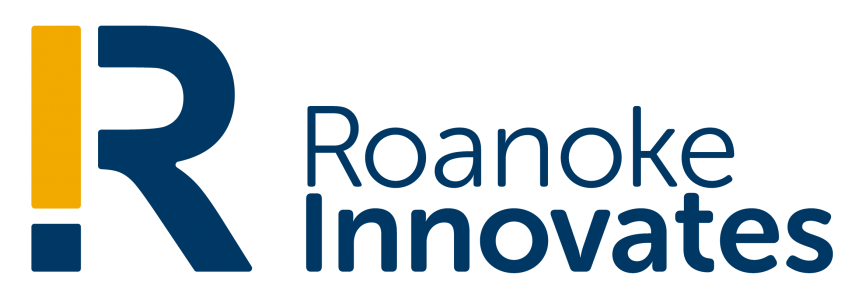Virginia Tech Updates:
Get Virginia Tech’s latest information related to the ongoing outbreak of COVID-19, commonly referred to as coronavirus. Here is operational information from the Vice President for Research and Innovation. Below are messages specific to the Fralin Biomedical Research Institute at VTC.
MESSAGE MARCH 19:
Dear Fralin Biomedical Research Institute and Vice President for Health Sciences and Technology Central Administration Colleagues,
As per the evolving situation, the following protocols are going into effect at 8 a.m. Thursday, March 19 until further notice:
Thanks very much to everyone for their help. Please continue to follow healthy preventative practices.
Michael J. Friedlander, Ph.D.
Virginia Tech Vice President for Health Sciences and Technology
Executive Director, Fralin Biomedical Research Institute at VTC
Senior Dean for Research, VTCSOM
MESSAGE MARCH 17:
Dear Colleagues,
Please be advised that the FBRI is open and operational. We are maintaining heightened risk mitigation procedures (described in previous communication attached below) and allowing employees that are at increased risk of either being particularly susceptible to COVID (age, underlying condition, immunocompromised, child care needs) and/or have other factors that create greater risk (e.g. family members living at home in similar situations) to work from home (telework).
It is important that in such situations, the employee coordinates that arrangement with their supervisor and the supervisor develops a work plan for the employee. (Documentation of such plans and work accomplished will be important going forward, particularly in dealing with federally funded research programs where employees are paid from those sources).
Of course if an employee is ill, has symptoms of COVID, has tested positive for COVID, or has a known exposure to a COVID positive person or has recently traveled to a level 3 or 4 country or other COVID hot spot, they should also arrange with their supervisor to stay home.
· If they are ill, they should use sick time while home.
· If they are self-quarantining based on risk, they should work from home with the work plan developed between them and their supervisor during that time.
· Each lab PI should work with the members of their research team and develop work plans for those who will be tele-working.
I am also attaching a paragraph from President Sands that was shared with university leadership this morning.
“Public health is the overarching concern, and teleworking is an outstanding option. In your messaging as leaders, however, please keep in mind that the campus is still open and we need some staff, A/P faculty, graduate students, and instructional faculty on campus to maintain critical functions including the ability to provide online teaching and learning. It is also likely that we will continue to house on the order of 1,000 students on campus – students who do not have a better option. Thank you for your leadership in this extraordinary situation.”
Thanks to everyone for their efforts in this challenging time. Please be prudent, follow the procedures outlined for work here at the FBRI, wash your hands frequently, use zoom meetings and teleconferencing from your offices whenever possible, don’t use elevators with multiple people, restrict any essential meetings in person to small groups in large rooms or outside and stay home and arrange for telework plans with your supervisor if your situation merits it. Most of all, be healthy.
Michael J. Friedlander, Ph.D.
Virginia Tech Vice President for Health Sciences and Technology
Executive Director, Fralin Biomedical Research Institute at VTC
Senior Dean for Research, VTCSOM
MESSAGE MARCH 15:
Dear Colleagues,
In light of emerging information about COVID-19 that includes evidence of possible transmission during early asymptomatic or mild symptomatic phases of infection, the Fralin Biomedical Research Institute and Office of the Vice President for Health Sciences and Technology are enacting programs to further increase interpersonal physical distance, to further decrease interpersonal interactions in the workplace and to provide additional protections for employees and their family members who may be at elevated risk. These programs become effective Monday, March 16 and will remain in effect until further notice. Please note that the Fralin Biomedical Research Institute and Office of the Vice President for Health Sciences and Technology are open and operational, having developed a unit level approach (see below) in coordination with the most current Virginia Tech policy announcement. While we are taking the additional steps outlined below to further insure faculty, staff and student well-being and we are working to maximize flexibility, individual work plans should be discussed with each individual’s supervisor, following the guidelines described below.
1) Most communications and meetings between i) central administration employees, ii) between central administration employees and other Fralin Biomedical Research Institute and Office of the Vice President for Health Sciences and Technology personnel including faculty, students and staff and iii) between central administration employees and personnel from outside FBRI or OVPHS&T, should be held either by email, telephone call, conference call, zoom and/or other virtual technologies. Most employees can accomplish this by working in their individual offices.
2) In-person meetings between i) central administration employees, ii) between central administration employees and other Fralin Biomedical Research Institute and Office of the Vice President for Health Sciences and Technology personnel including faculty, students and staff and iii) between central administration employees and personnel from outside FBRI or OVPHS&T, in the same confined space will be severely limited to only such rare situations where it is absolutely essential to meet together physically, and in such cases, it should involve only a small number of the necessary people distributed as far from each other as possible (preferably in a larger conference room or outside the building vs. in an individual office) and with no sharing of physical materials such as handouts and no food or beverages served.
3) Central administrative employees who cannot report to work because they must provide supervision or care to a child or family member due to a school/care facility closing and/or due to unavailability of a care giver or because the employee or a family member living with them are at high risk for COVID-19 morbidity (e.g. age, underlying chronic health condition that increases their susceptibility to morbidity due to COVID-19 infection, immuno-compromised, etc.) may telework from home with prior permission and a work plan from their supervisor. In such cases, it is important that the employee works during regular hours and is available for telephone calls and email communication with their supervisor and co-workers and is able to carry out their duties on their computer from home and access the internet. Employees may discuss other issues of concern that may also prevent them from safely coming to work with their supervisor. Each situation can be considered on a case-by-case basis. Employees should not bring children or other family members or visitors to work during the COVID-19 emergency in order not to increase their potential exposure and the potential exposure of employees.
4) Central administration and facility support employees whose work can only be done satisfactorily on site through their physical presence should continue to report to work, communicate with their supervisor about changing conditions and follow established practices while at work for maximizing physical distances between themselves and other employees and for personal hygiene.
5) Individual primary faculty PIs will determine procedures (within VT’s policies) for their research operations and team members under their supervision. It is recommended that whenever possible, primary faculty PIs make available the possibility for their research team members to telework from off-site, if such an arrangement won’t jeopardize the research operations. When teleworking is not possible, it is recommended that primary faculty PIs make sure to follow similar guidelines for their research team members that are recommended for central administration employees above for eliminating/severely minimizing in-person meetings and increasing physical distancing in the laboratory between their research team members. It is also recommended that PIs eliminate/severely curtail research team members physically meeting with other FBRI personnel including faculty, students and staff and with personnel from outside FBRI. In addition to routine laboratory environmental cleaning, it is recommended that commonly touched areas in labs such as freezer and refrigerator doors, bottles and jars, cabinet handles, fume hood sashes, doorknobs, sink handles, telephones, and shared instruments be disinfected with effective disinfectants. The VT OEHS and the FBRI Office of Facility Development and Technical Operations can help provide additional information for maintaining clean research areas to minimize possible exposure to the COVID-10 pathogen whenever possible.
6) Existing guidelines remain in effect such that anyone who has symptoms of COVID-19 infection, is habitating with anyone who has such symptoms or is positive for COVID-19, has a known recent (within last 14 days) exposure to someone who is COVID-19 positive, has traveled to an international site designated as a warning level 3 or 4 or has recently (last 14 days) traveled to a domestic COVID-19 hot spot, should not come to work and should telework.
7) Whenever possible, please use the stairs and avoid traveling in the elevator where people would interact in a small space. If you must use the elevator (other health reasons, carrying things, delivering things, etc.), please try to travel alone and have other people wait for the next elevator.
8) While refilling water bottles at a water cooler, please try not to touch their bottle/cup to the cooler spigot and potentially contaminate it.
9) Please remember to wash your hands frequently.
Thanks to everyone for your help with implementing these programs. They are in the spirit of trying to do everything reasonable to minimize possibilities for FBRI and OVPHS&T faculty, staff and students (and their families) being exposed to this infection and for working together as a team! Please make sure to talk with your supervisor in making any plans. Also, I am available to answer questions you may have.
Michael J. Friedlander, Ph.D.
Virginia Tech Vice President for Health Sciences and Technology
Executive Director, Fralin Biomedical Research Institute at VTC
Senior Dean for Research, VTCSOM
MESSAGE MARCH 14:
Dear Colleagues,
By now, you have all heard about the various cancellations, postponements and other actions to eliminate/reduce opportunities for spread of COVID-19. By way of summary, listed below are the upcoming events sponsored by the Fralin Biomedical Research Institute that have been cancelled or postponed to date:
CANCELLED
But these lectures are anticipated to be re-scheduled at a future time.
POSTPONED
Michael J. Friedlander, Ph.D.
Virginia Tech Vice President for Health Sciences and Technology
Executive Director, Fralin Biomedical Research Institute at VTC
Senior Dean for Research, VTCSOM
MESSAGE MARCH 11:
Dear Colleagues,
As you know the situation surrounding COVID-19 continues to emerge. The President of Virgina Tech sent an announcement to the entire university community outlining university policies. Please EVERYONE read this.
The Fralin Biomedical Research Institute will also do the following for the next several weeks at least until the end of March.
Thanks to everyone for your help and please be safe and exercise good health practices and common sense.
Michael J. Friedlander, Ph.D.
Virginia Tech Vice President for Health Sciences and Technology
Executive Director, Fralin Biomedical Research Institute at VTC
Senior Dean for Research, VTCSOM
MESSAGE March 10:
Dear Friends and Colleagues of the Fralin Biomedical Research Institute,
In an abundance of caution due to emerging concerns related to COVID-19 infection, the Fralin Biomedical Research Institute has decided to limit events that include large public gatherings for the remainder of March.
Thus, we have reluctantly cancelled this year’s brain school that would have been held on the evenings of March 16 – March 19. We will re-schedule the program at a future date and notify you well in advance.
Thank you for your consideration and for your support of the Fralin Biomedical Research Institute.
Michael J. Friedlander, Ph.D.
Virginia Tech Vice President for Health Sciences and Technology
Executive Director, Fralin Biomedical Research Institute at VTC
Senior Dean for Research, VTCSOM

